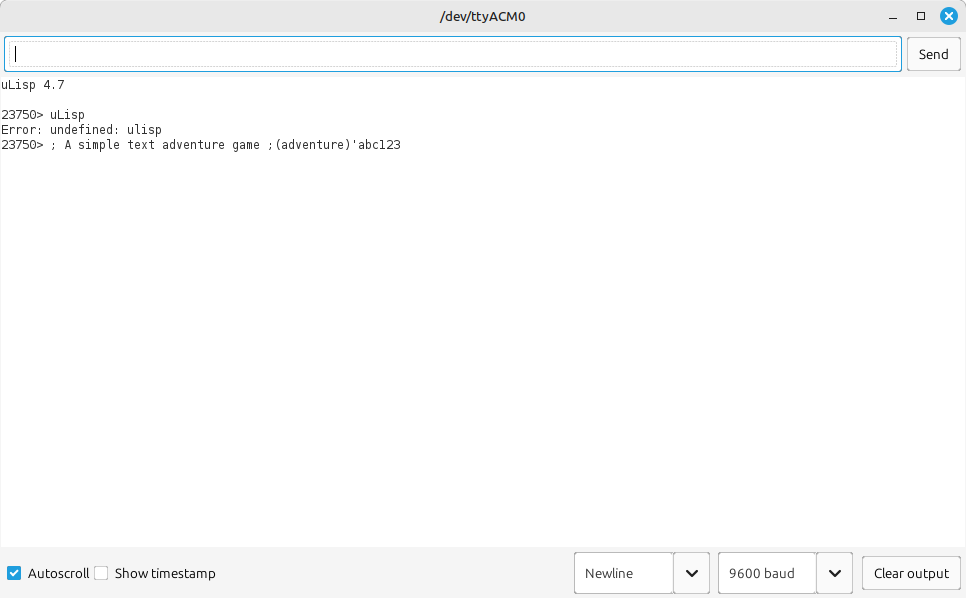I’m setting up Emacs on Linux for use with my Cardputer over serial via inferior-lisp and lisp-mode as explained here. Aside from some spurious ^M characters in Emacs this setup can work well for me.
However, I haven’t figured out how to evaluate from a Lisp mode buffer a long expression that triggers a serial buffer overflow on uLisp. Even when the expression is preceeded by a line starting with a semicolon, C-x C-e (eval-last-sexp) and M-x eval-region both trigger overflows as Emacs likely skips the comment prior to sending the code to uLisp.
Do you have any tips for sending long expressions from Emacs to uLisp? How do you do it?

